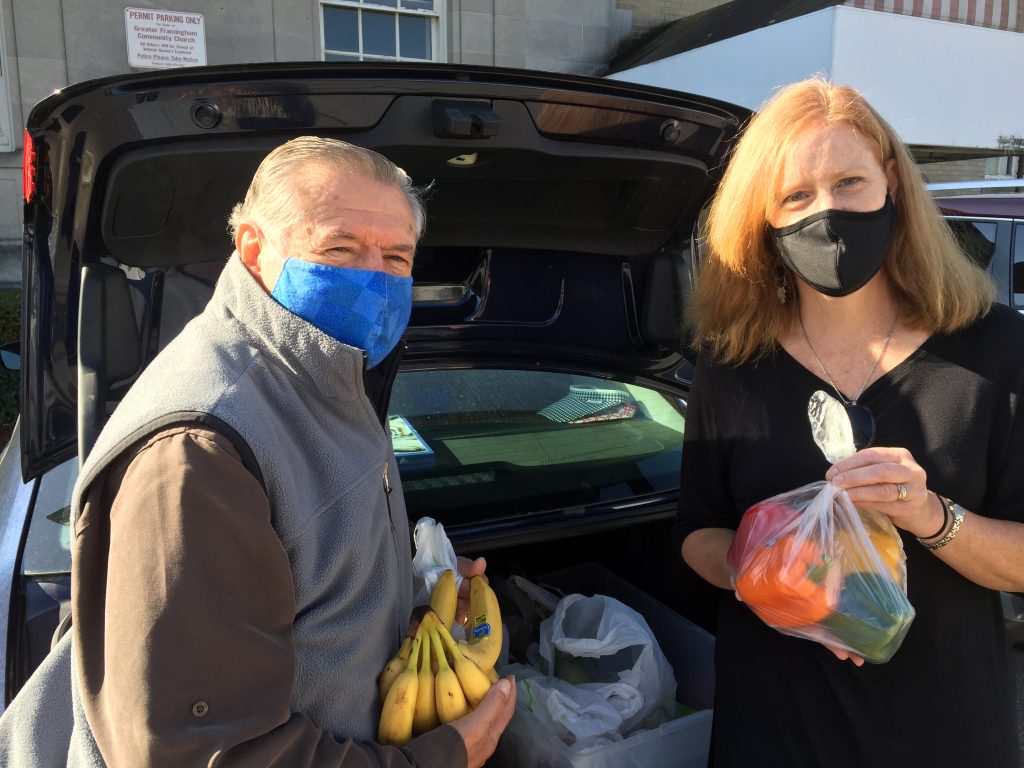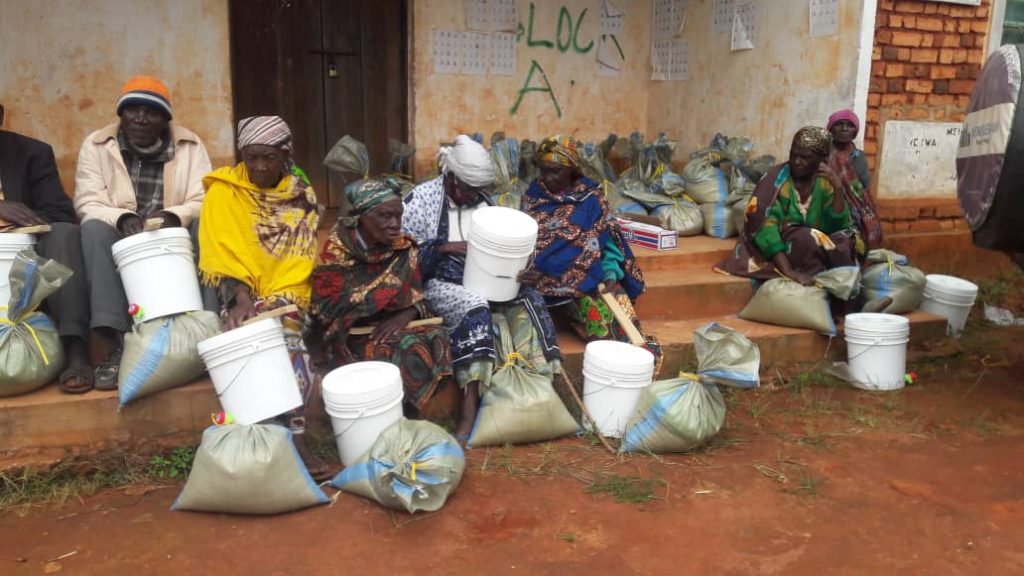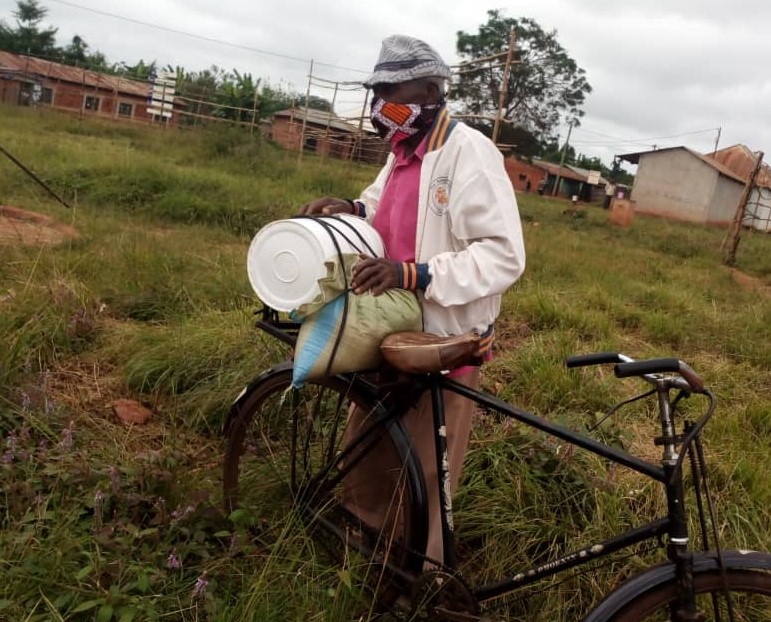By Luke Canavan
***
[broadstreet zone=”52093″]
FRAMINGHAM – Over the past year, countless organizations have had to take a step back and think of new and innovative ways to operate during the coronavirus pandemic. Religious institutions have been no exception.
Despite the roadblocks and restrictions brought on by COVID, many religious institutions have actually found great success in navigating the technological world and allowing people to continue to practice their faith in new, COVID-friendly ways.
“We’re certainly not meeting in person. [We] have to move creatively to use online platforms to do ministry and increase the idea of staying connected,” said Reverend Anthony Lloyd of Greater Framingham Community Church. “These are rough and difficult times, [and it is] important to stay connected with folk and check up on folk. We have had to think outside the box.”
“A lot of religious life depends on being with the community and engaging in rituals that involve physical spaces/objects, so we have had to be creative about accessing those rituals,” wrote Rabbi Allison Poirier of Temple Beth Sholom. “We distributed prayer books really early in the pandemic so most of our congregants have those with them at home and can participate in our virtual services.”

Virtual services seem to be a very common theme throughout religious institutions as they did their best to combat the limitations of COVID.
“We pre-record our worship Sunday services, and then stream them ‘live’ on Facebook and YouTube. We also have had occasional mid-week services on Zoom, which allows for a live, more responsive liturgy,” wrote Reverend Greg Morisse of The Plymouth Church in Framingham.
This use of technology has been adopted throughout most places of worship, and although digital platforms can make things easier, the transition process was certainly not without its difficulties.
“In a traditional Jewish community, [Zoom service] has an added level of complication because we typically refrain from engaging with electronics (phones, computers, etc) on the sabbath,” wrote Rabbi Poirier. “But, because of COVID, we’ve adapted to make sure that we can all safely access our community and ritual practices. I know these changes have prompted us to invest in more advanced technology so that we can continue to make things accessible online in the future.”
[broadstreet zone=”59945″]
Accessibility is key when it comes to drawing in a big crowd, and since the concept of virtual service has made religion more accessible to those not in the area, some religious institutions in Framingham have even noticed a rise in numbers throughout the pandemic.
“We have been getting fantastic turnout over Zoom—often more than if we had been in-person—and our services are lively, inviting, and connective,” wrote Rav Sam Blumberg of Temple Beth Am.
“I think aspects of our religious life have become more accessible. People who are homebound, out of state, or otherwise just wouldn’t shlep all the way over to our building are more eager to hop onto zoom,” wrote Rabbi Poirier.
Although virtual religious practice has made religion much more accessible for some, it has also created a place of isolation for others.
“When you think about it, not all senior citizens have access to WiFi, or a computer, this is just not fair,” said Reverend Lloyd. “It behooves the church to turn around and try to be creative in staying [connected] with them. Seniors are front line, in terms of being vulnerable to this here virus… and yet they’re the ones who feel the greatest degree of isolation… These are our elders. They have run the rates, they have been out there… We’ve got to redouble our efforts to care for them, and that is out of a sense of respect for who they are, and what they bring to the table.”
[broadstreet zone=”58610″]
Making a difference and standing up for those who need to be stood up for is something the religious institutions of Framingham aim to do. In the case of 2020, this has often meant combating racial injustice.
“This pandemic has exposed the systemic and structural inequities that were always there,” wrote Reverend Morisse. “Our congregation has been working to become more aware of and engaged in the work of racial justice and confronting white supremacy. We have marched locally here in Framingham and in Boston. We have studied. And we will continue to press each other and Framingham to [become] a more just city for every resident.”
“We talk about a pandemic of COVID-19 hitting, but you know, we have a pandemic of racism and hatred that’s going on at the same time,” said Reverend Lloyd. “That means we have multiple pandemics hitting people, and that has been a real challenge on us, but at the same time, you want to gather people’s goodwill, and certainly we’ve been doing that… There are stakeholders in Framingham helping to stay true to what their role is… What it means to fight racism, what it means to have diversity and inclusion, what it means to become an anti-racist insititution… [They are] helping to push the needle further, that we might really be a community who [can] celebrate who they are.”
Celebrating who they are is something the religious institutions of Framingham strive for.
[broadstreet zone=”59947″]
“We welcome and celebrate all people as they are, ‘including age, race, marital status, sexual orientation, gender identity and expression, socioeconomic status, mental and physical ability, and spiritual tradition,’” wrote Reverend Morisse. “We believe that Black Lives Matter. We believe Love is Love. We believe no human is ever illegal. We believe women’s rights are human rights. We believe in science and the urgency to care for and repair the environment. We believe a better world is possible when we set aside competition and division and step up to the work of love and service.”
It is important for people to feel accepted and loved for who they are, especially during such a time of uncertainty.
Not only are the religious institutions of Framingham proud to be who they are, but they are also proud of what they have done.
“Our Family Ministries Team has been delivering monthly bags of resources, crafts, and enrichment for all the families of our church,” wrote Reverend Morisse. “During the summer, I was able to hold outdoor office hours under a tent. Our Care Team has called every member of the church several times since last March. For Christmas, our Deacons prepared and hand-delivered a giftbox with ornaments, candles, cocoa, chocolate, a prayer devotional, and special worship bulletins for our Christmas Eve services. In all these ways, we hope to stay connected to one another, supporting each other in times of hardship and rejoicing in times of blessing.”

“This past fall we dedicated my weekly Adult Education class to different Jewish philosophies about who/what/where is God and how God acts in the world. I like to think that this learning experience helped people cope with some of the difficult questions that have arisen during COVID,” wrote Rabbi Poirier.
“One of the things we’ve been doing for the last eight months has been a grocery bag program,” said Reverend Lloyd. “We give out grocery bags to residents in Framingham and Natick, and in MetroWest, who are in need.”
“In January, we launched a Comfort and Connection initiative, with special online events as well as a campaign to call all of our congregants to learn how they are holding up and to make sure they are able to access our service over Zoom,” wrote Rav Blumberg. “This is a community that cares deeply about one another, which has been especially true over the last year.”
Some religious institutions of Framingham have even gone so far as to help people in need who are located in entirely different parts of the world.
“Just prior to the pandemic, we spun off our Africa Exchange Project into a non-profit,” wrote Reverend Morisse. “Our work focuses on education and healthcare. It is a decades old friendship between The Plymouth Church and a small village in Tanzania. When the pandemic began, we were worried for our friends in the village. When they shut down, we sent funds over to care for the elders who would be most affected. We sent hand washing buckets, rice, sugar, and masks.”
In addition to programs and ministries that provide people with much needed goods, the religious institutions of Framingham have also done their best to provide other services as well, such as funerals and memorial services, to those who have lost loved ones during the pandemic.
[broadstreet zone=”59984″]
“Funerals have been especially difficult during COVID, because so many people have been unable to say goodbye in the way we would have liked and because funerals are outdoors with limited attendance,” wrote Poirier. “In a traditional Jewish community, we would spend the days after a funeral visiting the home of the mourners and bringing them food. That’s obviously not an option right now, so we are doing our best to make calls, host zoom events, etc, to support people in the best way we can.”
Many of these institutions have also provided Zoom counseling sessions to help people better understand and process what is going on around them.
The COVID-19 pandemic has proved to be an unprecedented hardship, exposing all kinds of societal imbalances. By doing so, it has also brought the community of Framingham together and compelled them to lean on each other in order to make it through. In the end, isn’t that what it’s all about? Making sure we are all alright? The religious institutions of Framingham seem to think so, and plan on doing whatever it is they can to help the people in their community cope with the ever-so-changing world around them.
Reverend Lloyd said it best: “[Religious institutions have] to be a place where we remind people of hope, to ease even their darkest days.”

***
Luke Canavan is a spring 2021 SOURCE intern. He is currently a senior at the University of Massachusetts Amherst, where he studies Communication and English. He is passionate about film, television, writing, and literature, and upon graduation, he hopes to work in the entertainment industry full-time, where he can pursue his love for storytelling.
***
Photos submitted to SOURCE by Plymouth Church






